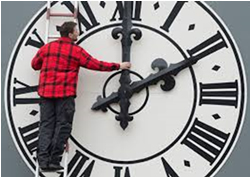 1. This week 10 years ago, Minister for Agriculture, Senator Joe Ludwig announced that live cattle exports to Indonesia would be suspended until new safeguards were established for the trade.
1. This week 10 years ago, Minister for Agriculture, Senator Joe Ludwig announced that live cattle exports to Indonesia would be suspended until new safeguards were established for the trade.
Senator Ludwig said the complete suspension of all livestock exports to Indonesia for the purposes of slaughter would be in place until the Government established sufficient safeguards to ensure there was verifiable and transparent supply chain assurance up to and including the point of slaughter for every consignment that leaves Australia.
He said an independent reviewer would be appointed to undertake a complete supply chain review of the live export trade for all markets.
2. Also this week, in the Northern Territory, one of the largest parcels of Aboriginal land in history was returned to Traditional Owners.
Deeds to Finke Gorge National Park, Simpson Desert Stage 4 and two smaller grants near Hermannsburg were handed back, with the land to be leased back to the Northern Territory for 99 years for use as a National Park.
Meanwhile, after the Federal Court of Australia granted the Wunambal Gaambera people native title over 26,000 sq km of Western Australia’s Kimberley region, the Traditional Owners immediately declared that 3,400 sq km of that area’s coastline would be formally managed for conservation as the Uunguu Indigenous Protected Area.
Australian Minister for the Environment, Tony Burke said it was a groundbreaking decision and a great conservation gift to all Australians.
3. Also this week in 2011, the National Library of Australia’s Trove search engine took out the highest honour in the 2011 Excellence in eGovernment Awards.
Trove, which links readers and researchers to millions of online resources in Australian libraries, cultural institutions and research collections, received a second award for being the best in the service delivery category.
Special Minister of State, Gary Gray commended the Library on its Trove service, which received three million visits in 2010 and an average of 25,000 unique visits a day.
Director-General of the National Library, Anne-Marie Schwirtlich said Trove was “a vital service both for Australia and Australians and as an exemplar for the national digital economy”.
4. This week a decade ago, the Australian Federal Police (AFP) signed a groundbreaking Memorandum of Understanding with the ACT Government to employ mental health specialists in its Operations Centre.
ACT Chief Minister, Katy Gallagher said the joint initiative aimed to promote greater mental health awareness and acceptance within the ACT community and address increasing pressures on the policing system.
She said two mental health clinicians from the ACT Health Directorate would be embedded within the Police Operations Centre as a dedicated resource available to police.
“These clinicians will work closely with both Agencies, and in differing capacities in times of peak demand,” Ms Gallagher said.
5. The NSW Independent Commission Against Corruption (ICAC) announced it was setting up a dedicated team to support Government whistleblowers reporting suspected corrupt conduct.
ICAC Deputy Commissioner, Theresa Hamilton said it required a lot of courage for public officials to come forward and blow the whistle on suspected corrupt conduct.
“The ICAC recognises the key role whistleblowers play in exposing public sector corruption and is keen to ensure that they are afforded the guidance and support they need,” Ms Hamilton said.
She said the new committee would offer guidance and assistance in instances where a whistleblower had broader concerns or needs beyond the scope of the complaint.
6. And this week back then, federal Attorney-General, Robert McClelland praised the efforts of Western Australia’s Yamatji Marlpa Aboriginal Corporation on its native title agreements with Rio Tinto Iron Ore.
The Corporation negotiated on behalf of Traditional Owner groups in the Pilbara region for agreements that provide land access and cooperation across more than 71,000 sq km of Rio Tinto’s iron ore business.
Mr McClelland said they were among the largest and most comprehensive native title agreements ever made.
“These agreements, which were negotiated over several years, are an excellent example of native title groups and industry working together to improve outcomes for Traditional Owners,” he said.



